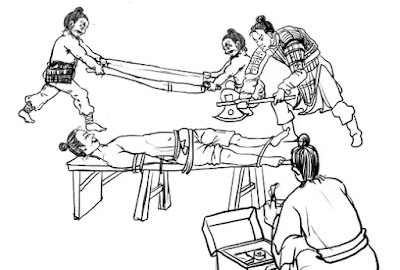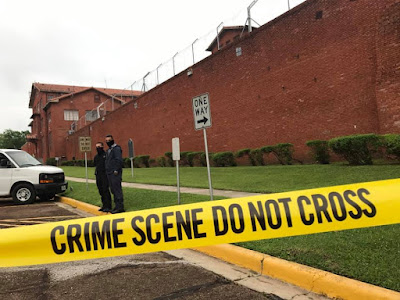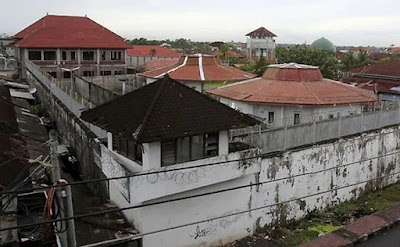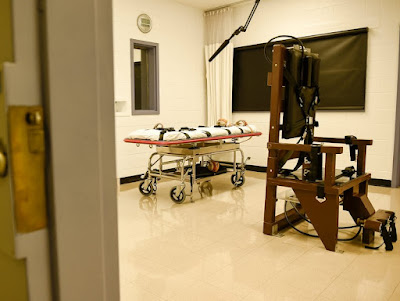 |
| Chinese police officers rehearsing execution procedures |
AN organ transplant can be the difference between life and death for many people.
For those in need of one, the wait for a call from hospital to say a match is available is an excruciating one.
Sometimes life outruns them before the call comes.
And so a booming black market for human organs has emerged in several countries including India and Pakistan.
Researchers say China is home to the most rampant illegal organ trade in the world and is the number one destination for ‘transplant tourism’.
The practice sees desperate people — from countries where waiting lists are longer than their life expectancy or costs are exorbitant — travel overseas to buy an organ and have lifesaving surgery.
But there’s a major catch: Researchers say the donor organs are often sourced illegally from prisoners executed for their religious, political or cultural beliefs, who have not consented to any of it. Many of China’s prisoners have testified to having been subjected to medical testing consistent with organ transplant screening but without explanation while behind bars.
“They called these people the living dead. You just haven’t died yet, but you’re gone,” one organ transplant recipient said.
The man, who didn’t want to be identified,
told PBS News Hour he had end-stage kidney disease 11 years ago until he travelled to China and paid $10,000 for a transplant.
Within one week, he received a new kidney.
He said he would have died before he reached the top of the waiting list for a new kidney in Canada, where he lives with his family.
“I went there dead. I came back alive.”
CHINA CONDEMNS PRACTICE BUT STILL HAPPENING
In 2005, Chinese officials admitted they harvested organs from prisoners and promised to reform the practice.
In the years that followed, several doctors were arrested for allegedly carrying out illegal organ transplants at private clinics, according to local authorities and state media.
Acting on a tip-off, police in Bazhou city in the northern province of Hebei arrested three doctors as they prepared to remove a kidney from a man, a local Communist Party official and police told AFP in 2011.
In 2013, director of the China Organ Donation Committee, Dr Huang Jiefu, told medical journal The Lancet that more than 90 per cent of transplant organs were still sourced from executed prisoners.
China announced the following year that it would end the harvesting of organs from executed prisoners and move to a voluntary donation-based system.
But according to several reports, the controversial practice is far from abolished, and there is evidence it still continues.
Demand for transplants far exceeds supply in China, a country of more than 1.3 billion, which has opened the door to the illegal sale of human organs.
Researchers estimate that as many as 1.5 million victims have had their organs harvested for China’s transplant industry.
Patients reportedly pay about $15,000 for an illegal organ transplant operation in China, according to previous state media reports.
In the US, the average hospital charge for a kidney transplant is $150,000.
In Canada and Australia it’s free, because the government pays for health care. But wait lists can be long. For some, too long.
According to the Australia & New Zealand Dialysis & Transplant Registry (ANZDATA), at least 55 Australians travelled overseas to receive a kidney transplant between 2006-2015.
The data isn’t broken down by countries and doesn’t include figures of Australians who have travelled overseas for transplants of organs other than kidneys, such as livers.
“It is possible that these numbers are an underestimate of the true number, since some patients may not return to Australia/New Zealand and hence be reported to ANZDATA as lost to follow-up,” ANZDATA’s 2016 annual report read.
➤ Click here to read the full article
Source: news.com.au, Megan Palin, June 3, 2017
🔎 Related content: The reality of human organ harvesting in China, news.com.au, Nov. 14, 2016
⚑ | Report an error, an omission, a typo; suggest a story or a new angle to an existing story; submit a piece, a comment; recommend a resource; contact the webmaster, contact us:
deathpenaltynews@gmail.com.
Opposed to Capital Punishment? Help us keep this blog up and running! DONATE!




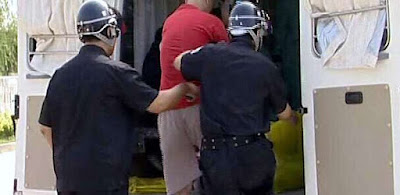
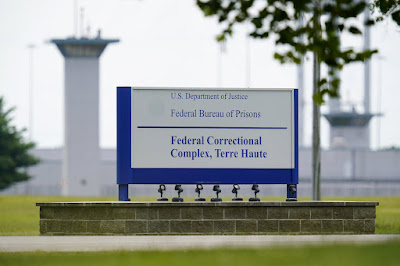
.jpg)

